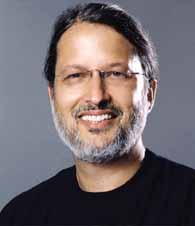|
Executive Interviews: Interview with Amitava Chattopadhyay on Executive Development
October 2007
-
By Dr. Nagendra V Chowdary
-
Are there any expected deliver ables
at the end of any executive
development program? Given the
"voluntary" nature of these programs,
do you think it's reasonable to expect
the rigor and seriousness in these
programs?
Executive development programs do
have deliverables and it is crucial
that these are indeed delivered. I am
not sure what you mean when you
say "voluntary nature of these
programs". The participants I meet at
the programs I teach in are typically
hand picked because they are
responsible for specific goals of the
organization and they attend the
program to acquire the knowledge
necessary to be able to deliver
|
|
what
the company expects from them.
Business schools, at least the ones I
have been involved with, take the
deliverables seriously and develop a
rigorous program around those deliverables. Likewise, the
participants that come take the
program seriously and are looking to
receive the promised deliverables.
Many a times companies attempt to
realize the same deliverables by giving
their executives "self-help" books. Do
you think formal classroom learning
would provide an enriching and
effective learning platform compared
to "self help" learning?
I think this goes without saying.
While reading a book can help, a
good executive program helps
participants internalize the
knowledge much more effectively
than reading a book can. Can you please share with our
readers your experiences in
designing and delivering executive
development programs?Andmore so
in "executing strategic change"
program? What is the profile of
par t icipant s ? What are thei r
expectations and what are endof
the program deliverables?
The process begins with
understanding the issues that the
company is grappling with. To
effectively understand this, one
needs to speak to not only the
program sponsor within the
organization but also individuals
who will potentially be participating
in the program. Based on this understanding one
needs to identify a faculty team who
will actually deliver the program.
The faculty team is briefed on the
key issues and in many instances
may have further discussions with
individuals within the firm to refine
their understanding from their
specific vantage points. For instance,
a company may need inputs in
several areas, e.g.,marketing, finance
and leadership. In such an instance
faculty from these different specialties would typically like to
speak to the firm for whom the
program is being designed to clearly
understand the issues from the
vantage point of their own specialty. The faculty team then puts
together a draft program that
articulates the specific topics, the
materials that support the session and
the pedagogical tools (cases,
simulations, lectures,…), and the
deliverables that these speak to and
how. The draft program is then
discussed with the firmand finalized. Drawing fromINSEAD's experience
in delivering one of the best executive
development programs, what trends
have you noticed in the last decade or
so? What is your assessment of the
future potential of this space?
This is a growing space as the pace of
change within organizations has
accelerated, making such inputs all
the more crucial. As I have noted
earlier, one key trend is a move
towards company specific programs
rather than sending executives to
open enrollment programs. Another
related trend is a growing clarity as
well as emphasis on accountability in
terms of deliverables. I also see a
trend towards programs that require
conceptual inputs as well as
facilitation of problem solving using
the conceptual frameworks and tools;
these latter programs require
considerably more inputs in terms
facilitation than the typical
customized company specific
programs.
1.
Training and Development Case Study
2. ICMR
Case Collection
3.
Case Study Volumes
|
